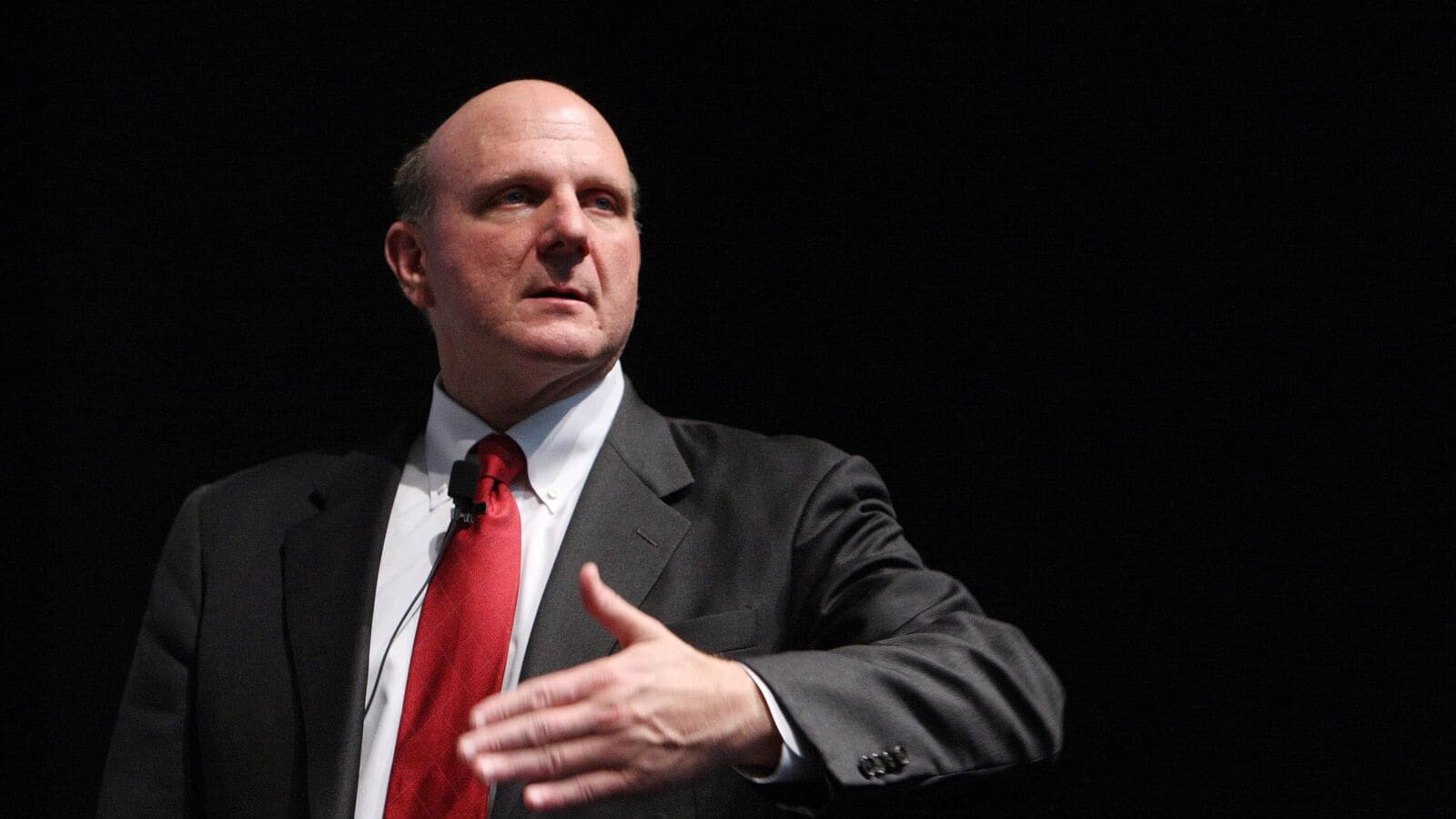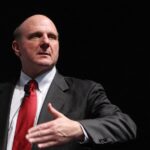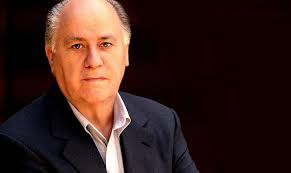- Home
- Billionaires
- Investing Newsletters
- 193CC 1000
- Article Layout 2
- Article Layout 3
- Article Layout 4
- Article Layout 5
- Article Layout 6
- Article Layout 7
- Article Layout 8
- Article Layout 9
- Article Layout 10
- Article Layout 11
- Article Layout 12
- Article Layout 13
- Article Layout 14
- Article Sidebar
- Post Format
- pages
- Archive Layouts
- Post Gallery
- Post Video Background
- Post Review
- Sponsored Post
- Leadership
- Business
- Money
- Small Business
- Innovation
- Shop
Recent Posts
Steve Ballmer: The Energetic Architect of Microsoft’s Expansion

Steve Ballmer, a dynamic and often exuberant figure in the tech world, is widely recognized for his time as CEO of Microsoft and his influential role in shaping the company’s growth and direction. Born on March 24, 1956, in Detroit, Michigan, Steven Anthony Ballmer was raised in a middle-class family. His father worked as a manager at Ford Motor Company, instilling in Ballmer an early exposure to business culture. A highly intelligent and competitive student, Ballmer attended the prestigious Detroit Country Day School before moving on to Harvard University, where he studied mathematics and economics. During his time at Harvard, he met Bill Gates, a fellow student who would later become a lifelong friend and professional partner.
After graduating magna cum laude from Harvard in 1977, Ballmer worked briefly as an assistant product manager at Procter & Gamble. He then enrolled in Stanford Graduate School of Business but dropped out in 1980 when Gates offered him a job at the then-young Microsoft. Ballmer became the company’s 30th employee and its first business manager. Unlike the technical engineers who made up the early team, Ballmer brought organizational strategy, business acumen, and high energy to the company. He quickly rose through the ranks and became an indispensable part of Microsoft’s leadership team.
During the 1980s and 1990s, Ballmer played a critical role in Microsoft’s rapid rise. He led various divisions, including operating systems, sales, and support. As Executive Vice President and later President, Ballmer helped guide the launch of products such as Windows, Microsoft Office, and the company’s suite of enterprise services. His no-nonsense, high-intensity leadership style complemented Gates’s technical genius, and together, they built Microsoft into a global software powerhouse. Ballmer was known for his passionate speeches, booming voice, and infectious enthusiasm—often jumping on stage and shouting slogans like “Developers! Developers! Developers!” at company events.
In January 2000, Steve Ballmer succeeded Bill Gates as CEO of Microsoft. The transition marked a new era for the company, with Ballmer focusing on broadening Microsoft’s product portfolio and navigating its position in an increasingly competitive tech landscape. His tenure as CEO lasted until 2014, and during that time, Microsoft’s revenue tripled, and its profits doubled. Ballmer oversaw the growth of enterprise software, cloud services, and server technologies, making Microsoft a critical player in business IT infrastructure.
However, Ballmer’s time as CEO was also marked by mixed results in the consumer market. The company struggled in areas like mobile phones, web search, and social media. Products such as the Zune media player and Windows Phone failed to gain significant traction against competitors like Apple and Google. Microsoft missed the early wave of smartphone innovation and failed to capitalize on the growing mobile and internet economy. Ballmer’s critics often point to these strategic missteps as missed opportunities during his leadership.
Despite the criticism, Ballmer made several key acquisitions that positioned Microsoft well for the future. One of the most notable was the purchase of Skype for $8.5 billion in 2011, integrating communications into Microsoft’s growing suite of productivity tools. Ballmer also began investing heavily in cloud computing, laying the groundwork for what would later become Microsoft Azure—a major success under his successor, Satya Nadella. In hindsight, Ballmer’s strategic investments in enterprise and cloud infrastructure proved to be prescient, even if their potential was not fully realized during his tenure.
Ballmer officially stepped down as CEO in February 2014 and retired from Microsoft’s board later that year. Following his departure, he shifted his focus to philanthropy, education, and sports. In 2014, Ballmer purchased the NBA’s Los Angeles Clippers for $2 billion, a record at the time. His acquisition came after the team’s previous owner was banned from the NBA, and Ballmer’s high-profile entry into the sports world brought excitement and credibility to the franchise. Under his ownership, the Clippers have undergone a significant transformation, with major investments in facilities, player development, and fan engagement.
Beyond sports, Ballmer has become increasingly involved in philanthropy and civic engagement. Along with his wife, Connie Snyder Ballmer, he launched Ballmer Group, an organization focused on improving economic mobility and addressing systemic inequities in the United States. The group supports nonprofit organizations and policy initiatives that aim to improve education, housing, child welfare, and public health. Ballmer has also invested in data transparency and social research through projects like USAFacts, a nonpartisan initiative that compiles and visualizes government data to inform citizens and policymakers.
Known for his larger-than-life personality, Ballmer is not your typical tech executive. He is animated, expressive, and deeply passionate about the things he cares about. His energetic style made him both a subject of internet memes and a beloved figure among many Microsoft employees. Despite the controversies and critiques that came with his time as CEO, Ballmer has always been unapologetically himself—a trait that has earned him admiration for his authenticity and dedication.
Steve Ballmer’s legacy is complex but undeniably impactful. He took the helm of Microsoft during a challenging time, kept the company profitable, and helped build the infrastructure that would later support its cloud and enterprise success. He is a business leader who combines fierce competitiveness with a deep commitment to public service. His story is one of resilience, loyalty, and reinvention—a journey that continues to evolve as he channels his resources and energy into making a difference beyond the boardroom.
From a Harvard undergraduate to the CEO of one of the world’s most influential tech companies, to a philanthropist and sports team owner, Ballmer’s life is a testament to the power of vision, determination, and adaptability. Whether remembered for his booming stage presence or his business achievements, Steve Ballmer remains one of the most fascinating figures in the modern history of technology and American enterprise.
- American billionaire
- animated speaker
- Ballmer Group
- Bill Gates
- Business Expansion
- business leader
- business strategy
- CEO
- charitable giving
- civic engagement
- cloud computing
- cloud infrastructure
- Connie Ballmer
- Detroit
- digital economy
- Digital Transformation
- economic mobility
- education reform
- enterprise growth
- enterprise software
- Harvard graduate
- high-energy CEO
- Innovation
- leadership legacy
- Los Angeles Clippers
- Microsoft
- Microsoft Azure
- missed opportunities
- Mobile Technology
- NBA owner
- office suite
- Philanthropist
- Procter & Gamble
- public data
- Skype acquisition
- social innovation
- Software Industry
- sports entrepreneur
- Sports Management
- Stanford dropout
- Steve Ballmer
- Strategic Investment
- tech executive
- tech giant
- technology vision
- USAFacts
- Windows
- Windows Phone
- Zune
Recent Posts
Categories
- 193 Countries Consortium Partner1
- 193cc Digital Assets2
- 5G1
- Aerospace & Defense48
- AI37
- Arts3
- Banking & Insurance11
- Big Data3
- Billionaires1,274
- Boats & Planes1
- Business332
- Careers13
- Cars & Bikes79
- CEO Network1
- CFO Network17
- CHRO Network1
- CIO Network1
- Cloud10
- CMO Network18
- Commercial Real Estate7
- Consultant1
- Consumer Tech194
- CxO1
- Cybersecurity73
- Dining1
- Diversity, Equity & Inclusion4
- Education7
- Energy8
- Enterprise Tech29
- Events11
- Fintech1
- Food & Drink2
- Franchises1
- Freelance1
- Future Of Work2
- Games149
- GIG1
- Healthcare79
- Hollywood & Entertainment203
- Houses1
- India’s 1000 Richest1
- Innovation46
- Investing2
- Investing Newsletters4
- Leadership65
- Lifestyle11
- Manufacturing1
- Markets20
- Media327
- Mobile phone1
- Money13
- Personal Finance2
- Policy569
- Real Estate1
- Research6
- Retail1
- Retirement1
- Small Business1
- SportsMoney42
- Style & Beauty1
- Success Income1
- Taxes2
- Travel10
- Uncategorized13
- Vices1
- Watches & Jewelry2
- world's billionaires1,243
- Worlds Richest Self-Made Women2
Related Articles
Mark Zuckerberg: The Architect of the Social Media Revolution
Mark Zuckerberg, the co-founder and CEO of Facebook (now Meta Platforms Inc.),...
By 193cc World's BillionairesApril 30, 2025Zhong Shanshan: The Lone Wolf Billionaire of China
Zhong Shanshan, often referred to as the “Lone Wolf” of China’s business...
By 193cc World's BillionairesApril 30, 2025Sergey Brin: The Innovator Who Helped Shape the Digital Age
Sergey Brin, co-founder of Google and one of the pivotal figures in...
By 193cc World's BillionairesApril 30, 2025Amancio Ortega: The Fashion Titan Behind Zara’s Global Empire
Amancio Ortega, the enigmatic founder of the Inditext Group and the visionary...
By 193cc World's BillionairesApril 30, 2025













Leave a comment